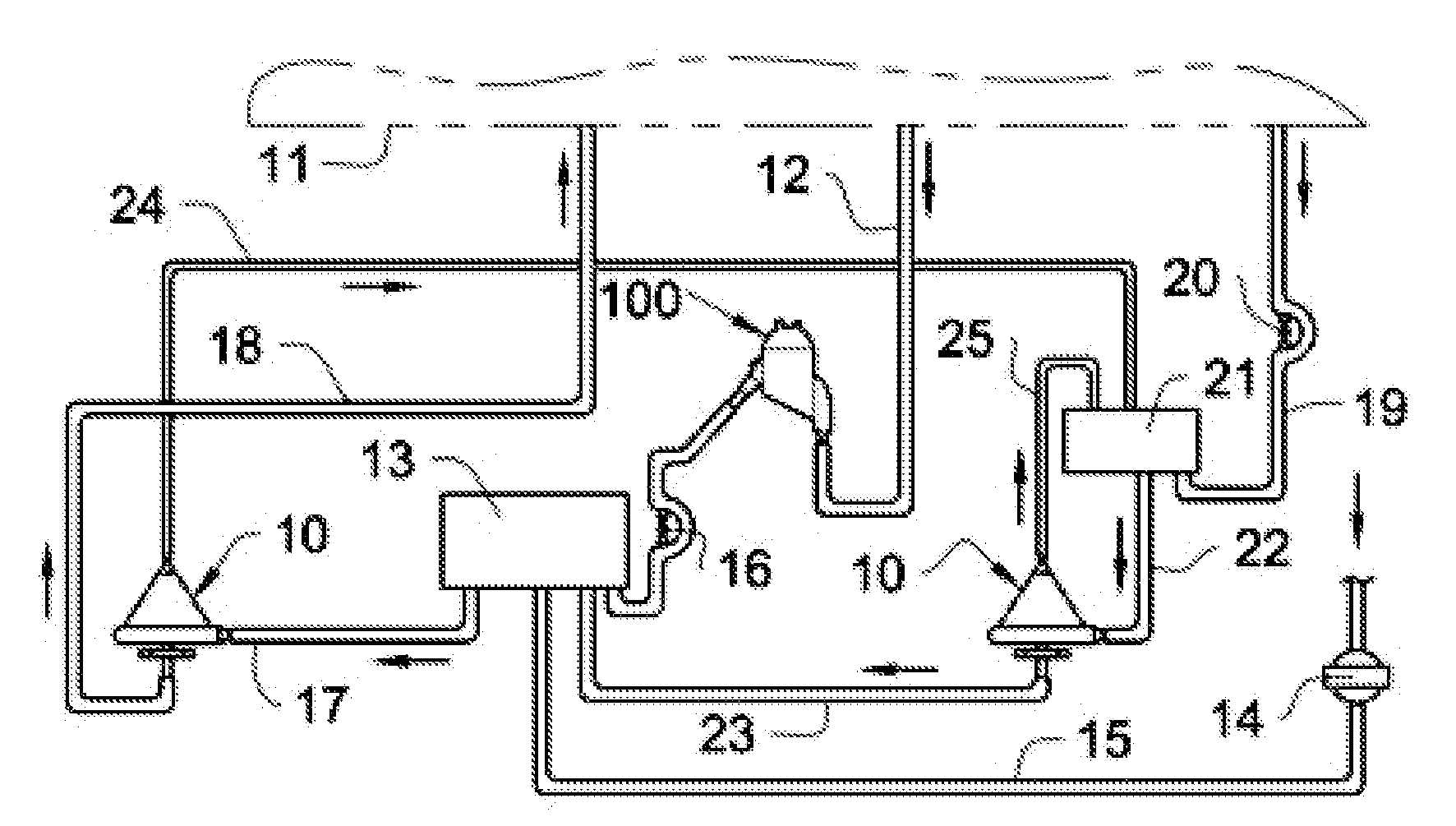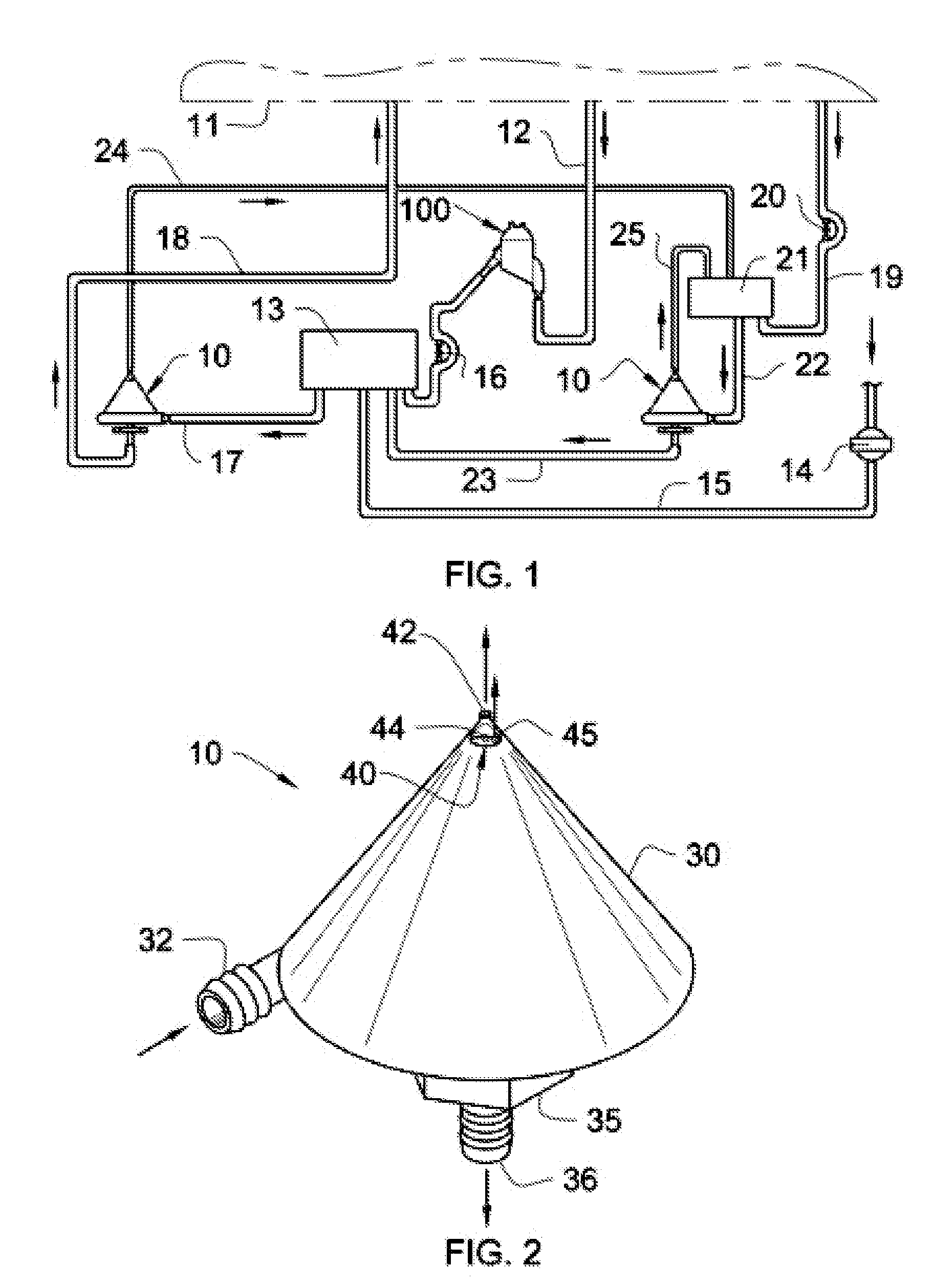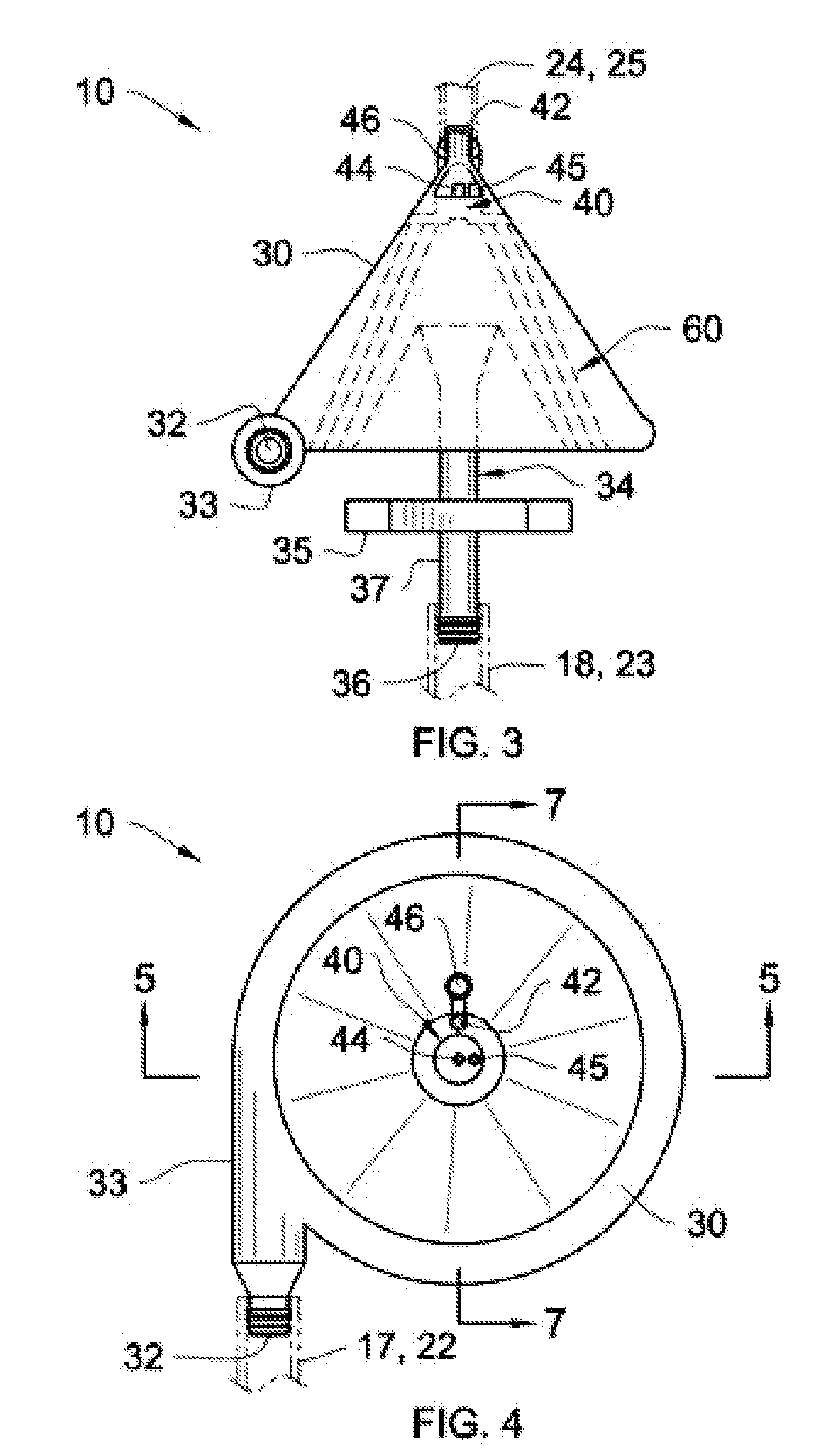Extracorporeal Blood Filter System
a blood filter and extracorporeal technology, applied in the direction of liquid degasification, separation process, filtration separation, etc., can solve the problems of reducing the efficiency of the filter housing, reducing the filter efficiency and debris clearance, and the large screen surface area contributes negatively to blood handling, etc., to achieve low manufacturing cost, low low price of sale, and easy and efficient manufacturing
- Summary
- Abstract
- Description
- Claims
- Application Information
AI Technical Summary
Benefits of technology
Problems solved by technology
Method used
Image
Examples
Embodiment Construction
[0040]Referring now to the drawings and particularly to FIGS. 1-12, the preferred embodiments of the present invention are shown and generally designated by the reference numerals 10 and 100.
[0041]FIG. 1 illustrates the placement of the new and improved blood filter systems 10 and 100 in an extracorporeal circuit used during cardiopulmonary support procedures. One possible bypass circuit is described herewith, but other bypass circuits can also utilize the blood filter systems 10 and 100. In FIG. 1, a pump 16 draws blood from the patient 11 via tube 12 into blood filter system 100 where micro-bubbles, free gases and debris are removed before being pumped into an oxygenating device 13. The oxygenating device 13 removes carbon dioxide from the blood and introduces oxygen from an oxygen filter 14 and tube 15. Blood in oxygenating device 13 is then pumped into blood filter system 10 through tube 17 where micro-bubbles, free gasses and debris are further removed from the blood. Following...
PUM
| Property | Measurement | Unit |
|---|---|---|
| angle | aaaaa | aaaaa |
| angles | aaaaa | aaaaa |
| angles | aaaaa | aaaaa |
Abstract
Description
Claims
Application Information
 Login to View More
Login to View More - R&D
- Intellectual Property
- Life Sciences
- Materials
- Tech Scout
- Unparalleled Data Quality
- Higher Quality Content
- 60% Fewer Hallucinations
Browse by: Latest US Patents, China's latest patents, Technical Efficacy Thesaurus, Application Domain, Technology Topic, Popular Technical Reports.
© 2025 PatSnap. All rights reserved.Legal|Privacy policy|Modern Slavery Act Transparency Statement|Sitemap|About US| Contact US: help@patsnap.com



